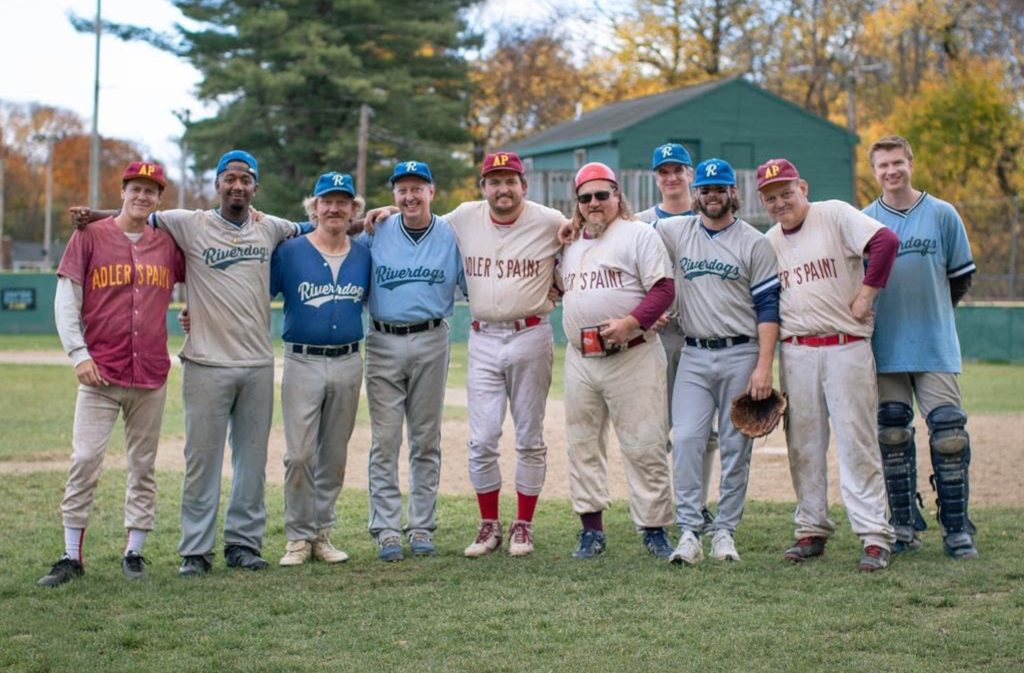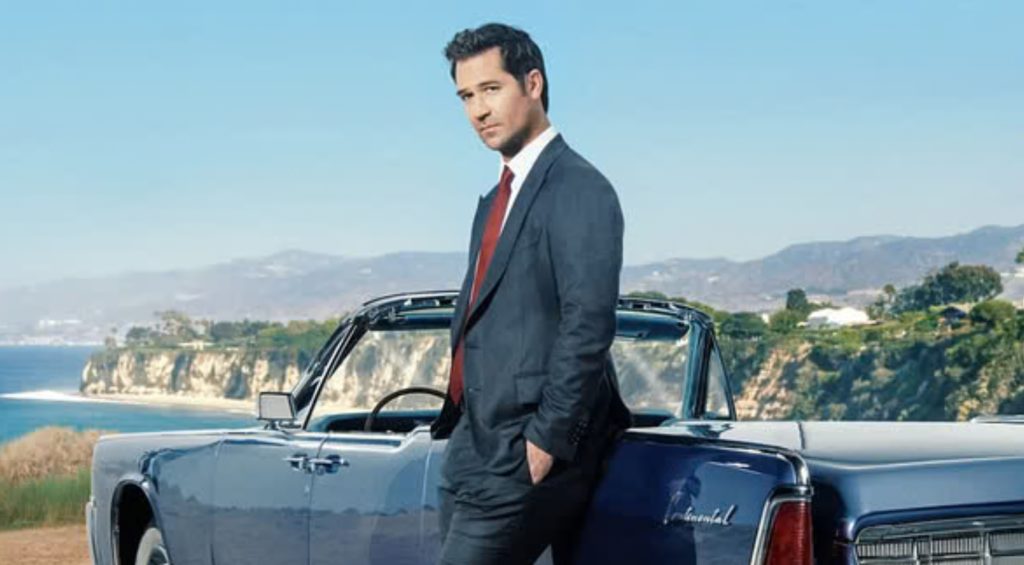By Juan-Carlos Selznick

Good Pitch
Eephus is a baseball movie unlike any other. Its entire action is an account of a single game played by two rec-league teams somewhere in New England. It’s the last game of the season, and the last game ever on a playing field that’s about to become the site of some major construction. The actors are charmingly credible as weekend athletes, and the game action feels authentic. The central focus is the drama of a single game, first inning to last, with incisive glimpses of character and local color emerging seamlessly in the ebb and flow of the game action.
The movie itself has the beguilingly leisurely pace of a neighborly game played on a late summer afternoon. It’s a close game, scoring-wise, but the final score matters less than the moment-to-moment savoring of detail and the blissfully lyrical flow of time.
The film’s title refers to a kind of trick pitch, a looping and unusually slow toss that’s the complete opposite of the 100mph fast balls that figure in a recent baseball-centric episode of Poker Face (S2, E5). In that one, Natasha Lyonne’s picaresque problem-solver finds herself serving as a very laid-back “ball girl” for a very scruffy minor league team. The episode has some of the same rough-edged affection for the game as Eephus, but with the briefer and more fanciful story arc required of even a comical mystery tale.
Sinner Men
There’s a lot to like about Ryan Coogler’s Sinners, but I’m especially be-smitten with a casually beguiling moment early on — a single shot in which the two main characters (twins, both played by Michael B. Jordan) share a quick smoke. Not quite facing the camera, they stand at an angle, slightly apart, and gazing into the distance. The brother on the left lights up, takes a puff, and hands it to his brother, who also takes a puff. Since we’re likely to be aware that both men are played by the same actor, we’re also likely to be a little surprised, even delighted, by the inconspicuousness of what otherwise might have been an obvious bit of cinematic trickery. And while this offhanded bit of movie magic is appealing in its own right, it also apt in terms of theme and character — two people who are versions of each other but not entirely similar, both intent on the same things but not as full partners, fraternal opposites yet linked by small unspoken intimacies. It’s a wonderfully nonchalant moment of special effects and it results in cinematic poetry of a beautifully understated sort.

Bosch & Lincoln, et al.
Stay with me on this — long story short: I’ve really enjoyed the recent season of Bosch: Legacy, and after the last episode I went looking for something similar to read. By chance I found Night Fire, a Michael Connelly novel which partners Bosch with Rene Ballard (who, coincidentally, figures prominently in late episodes of Bosch: Legacy as well). Part way through my reading, Bosch teams up briefly with a lawyer who rides around in a chauffeured Lincoln. That got me thinking about The Lincoln Lawyer, another Connelly-authored series that’s been a movie and now a TV series, too. I’d previously avoided the series, mainly out of the suspicion that the absence of Matthew McConaughey (star of the film version) would be a fatal weakness for the series. But the character’s appearance in Night Fire aroused my curiosity anew, and I got busy giving that TV series my full attention. Long story short: I still like the movie a lot, but have come to feel the series is superior in nearly every respect. It’s much closer to the SoCal social ambience of Connelly’s fiction, and much richer in terms of secondary characters. Manual Garcia-Rulfo (as Mickey Haller) is no McConaughey, but now, he definitely seems the better of the two onscreen versions of the title character.

Be the first to comment